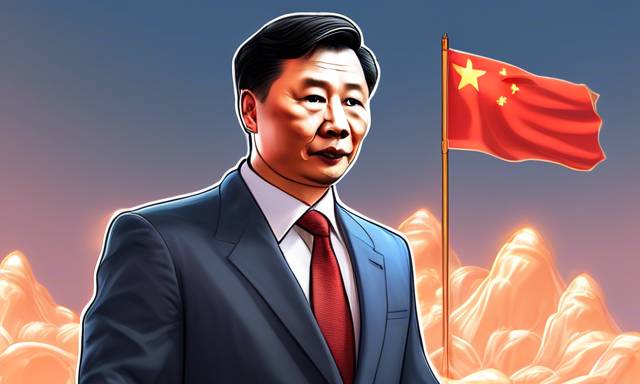Is China’s Crypto Ban on the Brink of Reversal?
Hey there! So, let’s talk crypto and the recent buzz surrounding the future of virtual assets in China. You know, it’s wild how the crypto sphere evolves almost daily, and here we have a former senior official from China’s Ministry of Finance stepping up to urge the government to rethink its hardline stance against cryptocurrencies. This is big information, especially given how stifling those regulations have been since 2017. Buckle up, because we’re diving into what this might mean for the crypto market, especially for those of us who are keen investors!
Key Takeaways:
- A former Chinese finance official advocates for a reevaluation of the crypto ban.
- China’s strict regulations contrast with a more flexible approach in Hong Kong.
- Political voices in the U.S. highlight the importance of embracing digital assets.
- Potential implications of changing regulations on global crypto dynamics.
Now, let’s unpack the situation. Zhu Guangyao, who held a significant role from 2010 to 2018, recently spoke at a Beijing economic forum, emphasizing how crucial cryptocurrencies are for boosting China’s digital economy. I mean, how often do you hear someone from the government suggesting that they should change their rigid policies? This shift could be signaling a bigger picture, right?
Are Regulations the Future for Crypto?
You see, Zhu’s perspective is noteworthy. He acknowledges that while crypto does carry risks—like volatility and misuse—regulation could be a managing force rather than an outright ban. Over the past few years, China has implemented some pretty assertive measures against cryptocurrencies, including banning initial coin offerings (ICOs) and shutting down exchanges. Back in 2021, it escalated things further by banning Bitcoin mining, a decision that pushed many operations overseas, mostly to the United States.
Now, that’s not just some random economic decision; it’s strategic. Maintaining financial stability seems to be at the core of these actions, alongside concerns about criminal activities. Yet, Zhu’s commentary about how underground trading continues despite regulations suggests that heavy-handed approaches might not be the best route after all. I mean, isn’t it better to control the narrative rather than watch it slip into the shadows?
Hong Kong: A Pilot for Change
On the flip side, we have Hong Kong, which is strutting its stuff as it works toward becoming a global hub for digital assets. The region’s narrative is entirely different, leaning into crypto innovation with separate legal frameworks sanctioned by Beijing. This contrast is fascinating, especially now that Hong Kong has introduced crypto ETFs. This means they’re investing directly in the heavyweights of the crypto market—Bitcoin and Ethereum.
So, while mainland China has been extra cautious, Hong Kong is almost like that rebellious kid in class ready to push boundaries and try new things! It’s kind of thrilling, isn’t it? With significant moves like these, investors might start to look toward Hong Kong as a blueprint for future endeavors in the crypto space.
Political Climate Influencing Crypto Adoption
We can’t ignore the role of politics, especially across the ocean in the United States. Former President Donald Trump and current presidential hopeful Kamala Harris have both expressed strong sentiments about the need for embracing digital assets. It’s truly interesting how the narrative has switched to “let’s get on board” rather than letting other countries claim the crypto crown.
This brings up a solid point about innovation vs. regulation. As the U.S. develops its own framework for crypto, it seems to reject the deny-and-restrain method that’s current in China. What if this leads to the U.S. solidifying its status as a dominant crypto hub? That could cause ripples in the market conditions and ultimately affect the investments we’re all eyeing.
What’s Next for China?
So, what does all this mean for potential investors? If China begins to adopt more regulatory measures instead of outright bans, it opens the floodgates for innovation and investment opportunities. If Zhu’s call gains traction, we may soon witness a shift away from the fear-driven policies that have kept the country at bay from the global crypto scene.
- Stay Informed: Keep an eye on both China and Hong Kong’s regulatory moves. They could impact the global economy, and especially your investments.
- Research Before Investing: Take a look at which coins or tokens support regions with more lenient regulations. For example, think about how you could benefit from crypto ETFs available in Hong Kong.
- Consider the Political Climate: As we’ve seen, political sentiments can drive market dynamics. Register for newsletters or follow relevant news channels to get real-time insights.
In the end, it looks like we’re at a critical juncture for the crypto market, especially in how we perceive global regulations. Will China shift its policies, or will it continue to lag behind? Only time will tell.
So, here’s a question for you to ponder: If China does change its stance and opens up to cryptocurrencies, how do you think this could reshape the global crypto landscape?





 By
By


 By
By
 By
By